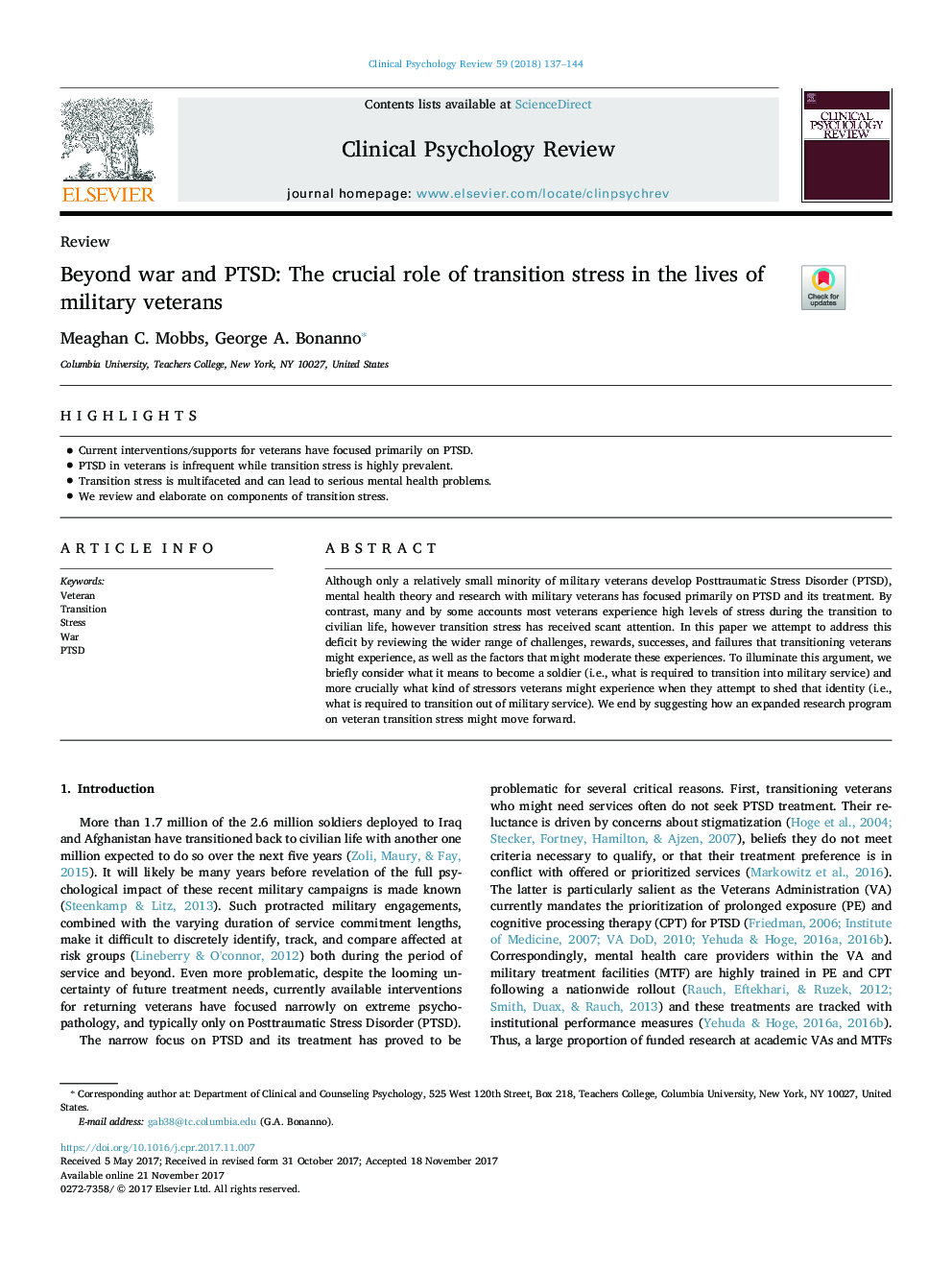| Article ID | Journal | Published Year | Pages | File Type |
|---|---|---|---|---|
| 7263573 | Clinical Psychology Review | 2018 | 8 Pages |
Abstract
Although only a relatively small minority of military veterans develop Posttraumatic Stress Disorder (PTSD), mental health theory and research with military veterans has focused primarily on PTSD and its treatment. By contrast, many and by some accounts most veterans experience high levels of stress during the transition to civilian life, however transition stress has received scant attention. In this paper we attempt to address this deficit by reviewing the wider range of challenges, rewards, successes, and failures that transitioning veterans might experience, as well as the factors that might moderate these experiences. To illuminate this argument, we briefly consider what it means to become a soldier (i.e., what is required to transition into military service) and more crucially what kind of stressors veterans might experience when they attempt to shed that identity (i.e., what is required to transition out of military service). We end by suggesting how an expanded research program on veteran transition stress might move forward.
Keywords
Related Topics
Health Sciences
Medicine and Dentistry
Psychiatry and Mental Health
Authors
Meaghan C. Mobbs, George A. Bonanno,
